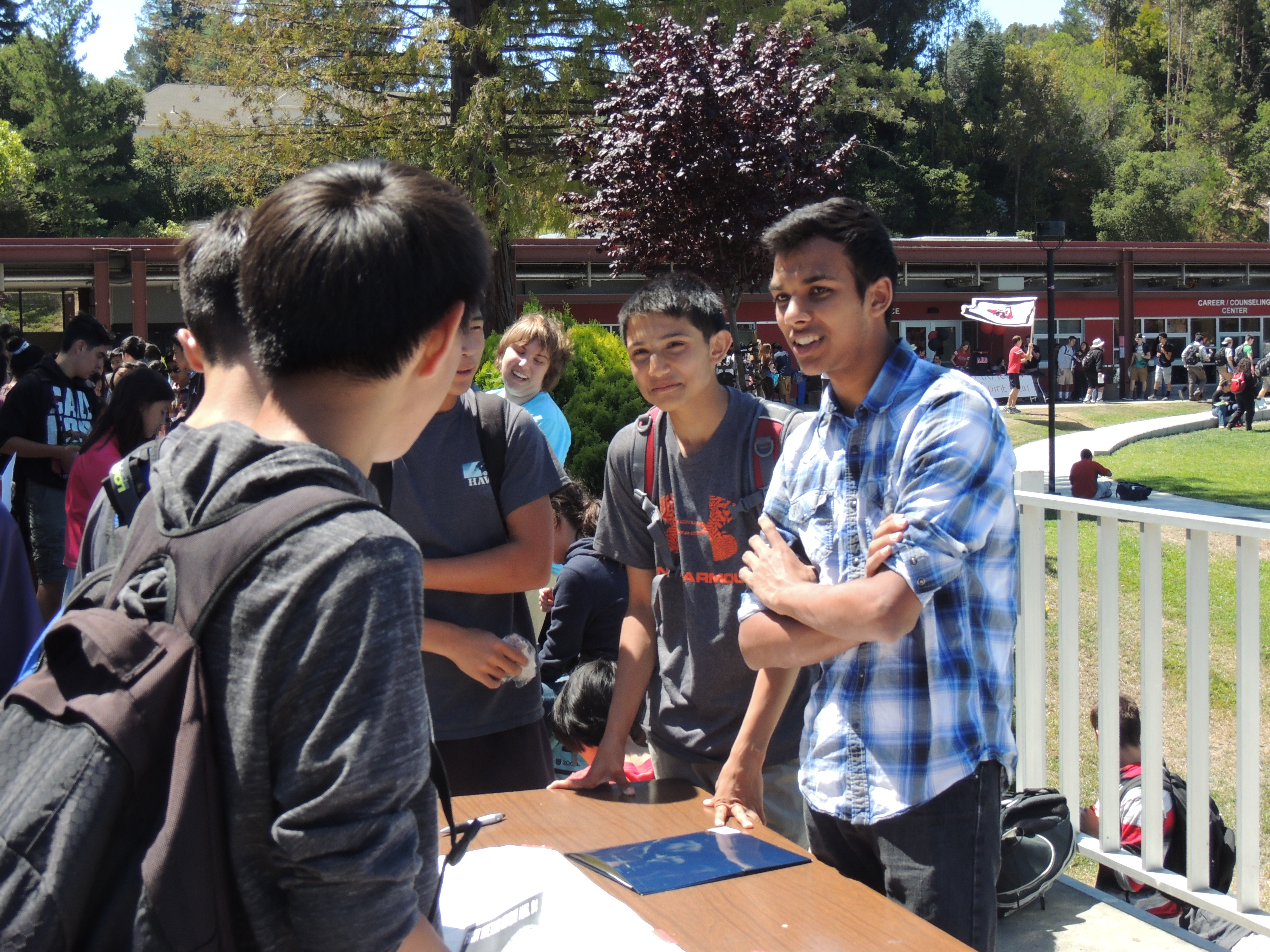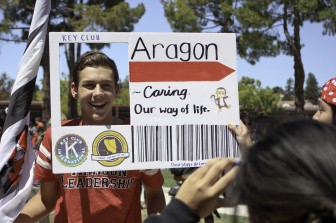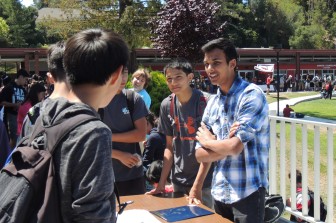
Leadership organized its annual club fair, an event where clubs introduce their clubs in hopes of gaining more members, on Aug. 21.
Although clubs connect students with similar interests, chartering one requires extensive paperwork. This year, all clubs, both old and new, had to submit a club charter that included the designated meeting location, adviser, club officers, proposed budget, and club constitution.
Aragon Student Body Vice President and senior Collin Liu says, “The club charter is required by the school district and must be approved by the Leadership committee. Usually, we will hold meetings in [during class] and it [will] take a couple days maximum to make any last changes to a club. Also, old clubs [had] to reapply to let the Aragon Student Body know if any changes have been made, such as if they have updated club officers.”
Liu also points out that there are occasions in which the Aragon Student Body has the responsibility of rejecting a club idea. He says, “Unfortunately, we have the power to reject some clubs. Sometimes clubs form because they want to fundraise for their own needs, and the school district prohibits illegal transactions or businesses. As a result, the Aragon Student Body has to reject [clubs solely] based on this purpose of fundraising. Also, sometimes we will not pass a club if it copies another club or has a similar purpose. There are times when people form a club and do not hold meetings. It turns out that they form the clubs for Silver Sword points. So, it is crucial for the Aragon Student Body to read the club’s purpose closely and prevent this from happening.”

Some clubs offered at Aragon teach students new skills and introduce them to possible career options. Harvard Model Congress, for example, introduces its members to the world of politics and government.
Harvard Model Congress member senior Scott Chow stresses the importance of incorporating freshmen into the club culture, as they will represent the new generation of Aragon leaders. He says, “It is important to reach out to freshmen during the club fair. I see recruitments at two different levels: freshmen as one level and sophomores and above as the other. It is crucial to introduce the freshmen to our club because freshmen are not familiar with the school and do not know that many people. Our club would provide more opportunities for freshmen to make new friends and engage in a safe environment to practice research.”
Other Aragon clubs focus on community service. Junior Dina Zheng is president and founder of LEOS Club. She says, “For LEOS Club, I was a part of a dynamics musical group for a charity event. We would play music at a local community center, and we practiced our local principle of serving the community. It was very uplifting experience to know that the work and money we put towards to save someone’s life.”

This year, senior Daniel Ho formed the new Competition Science club. He says, “You have to consider whether this idea can become a viable club — in terms of interest, and more importantly, what the club will be doing from week to week, both at lunch meetings and beyond. I think this is one of the most difficult parts of forming a club … I communicate constantly with [senior Langston Swiecki] and [senior Eric Chen], who also help run the club. I start by deciding the agenda for the meeting, and then we prepare appropriate materials for the club such as Powerpoint presentations.”
Liu concludes, “Clubs are an integral part of Aragon culture … The difference between clubs and a classroom [is that] in a classroom, you will not know people’s hobbies by looking at them. Clubs express a student’s beliefs and motivations entirely because they demonstrate the commitment and dedication to pursue their dream.”
